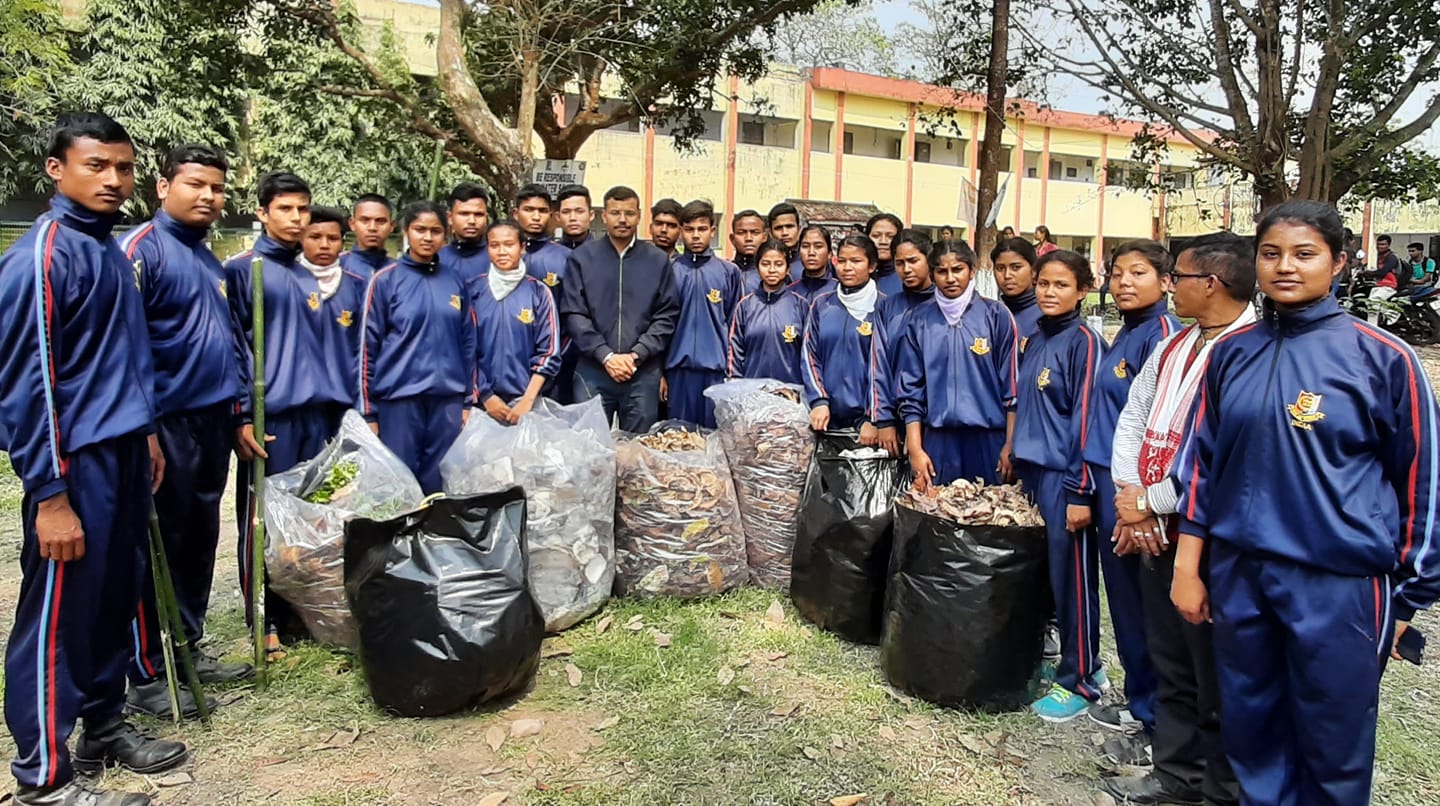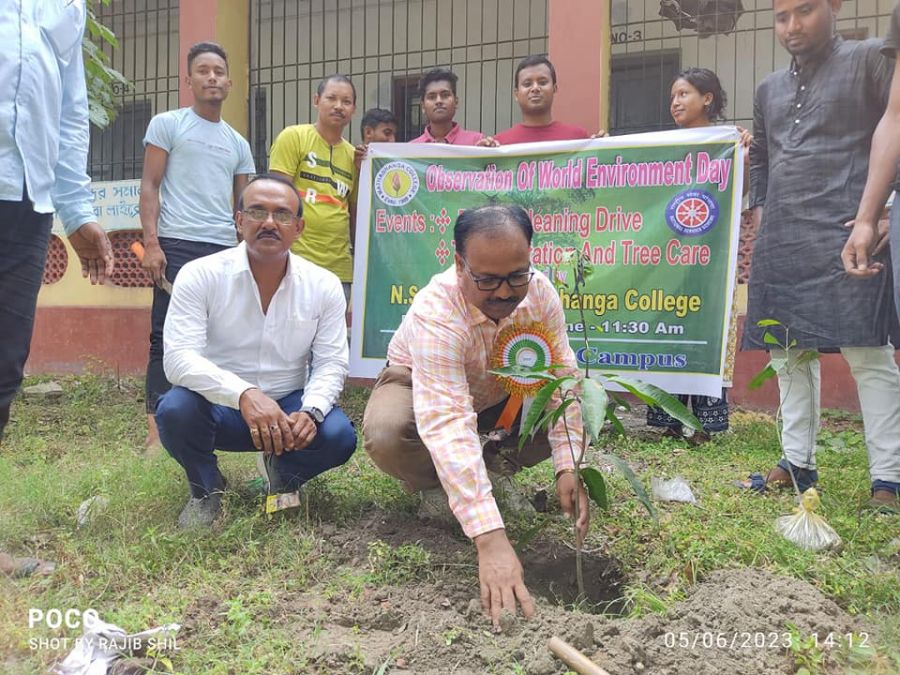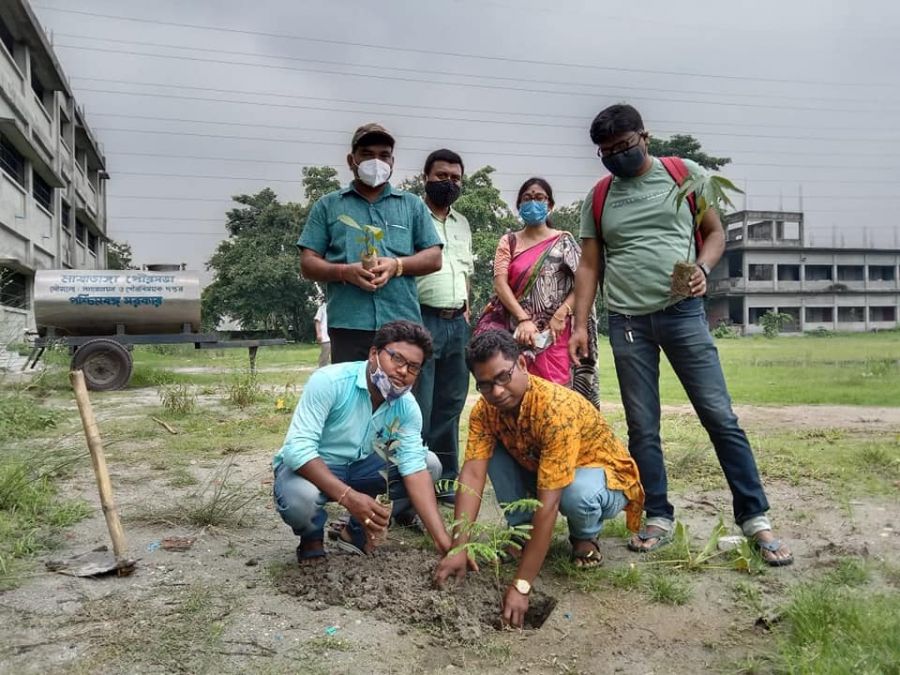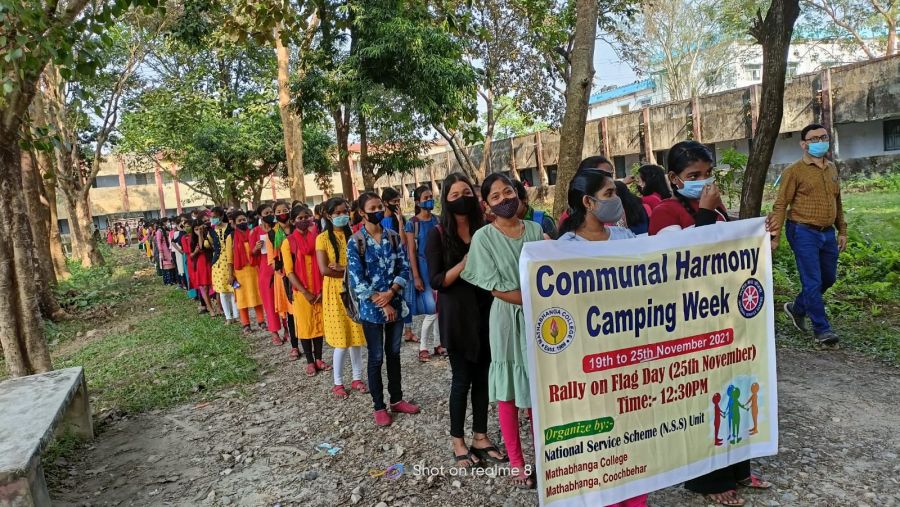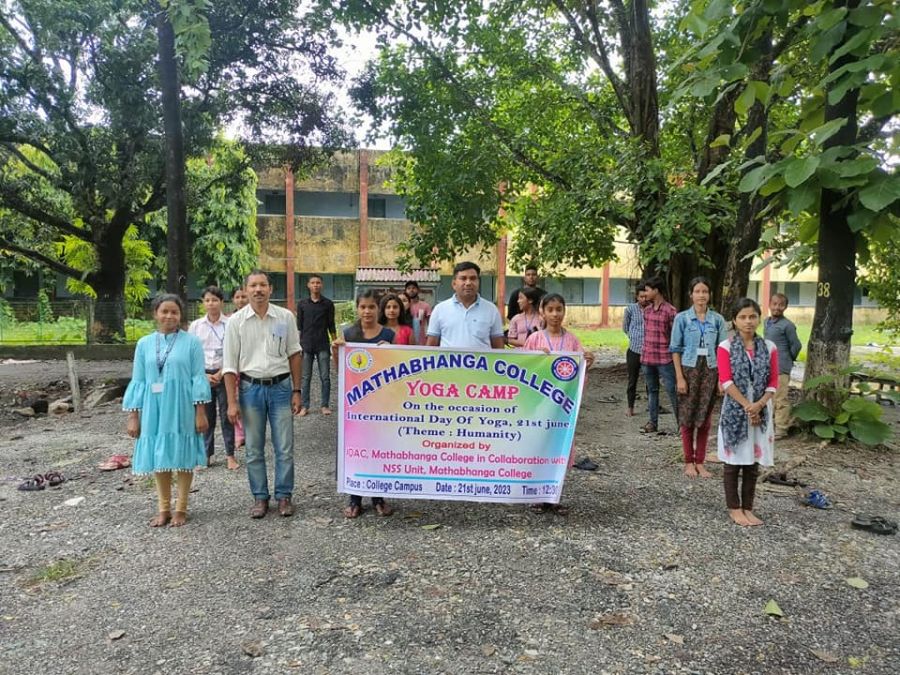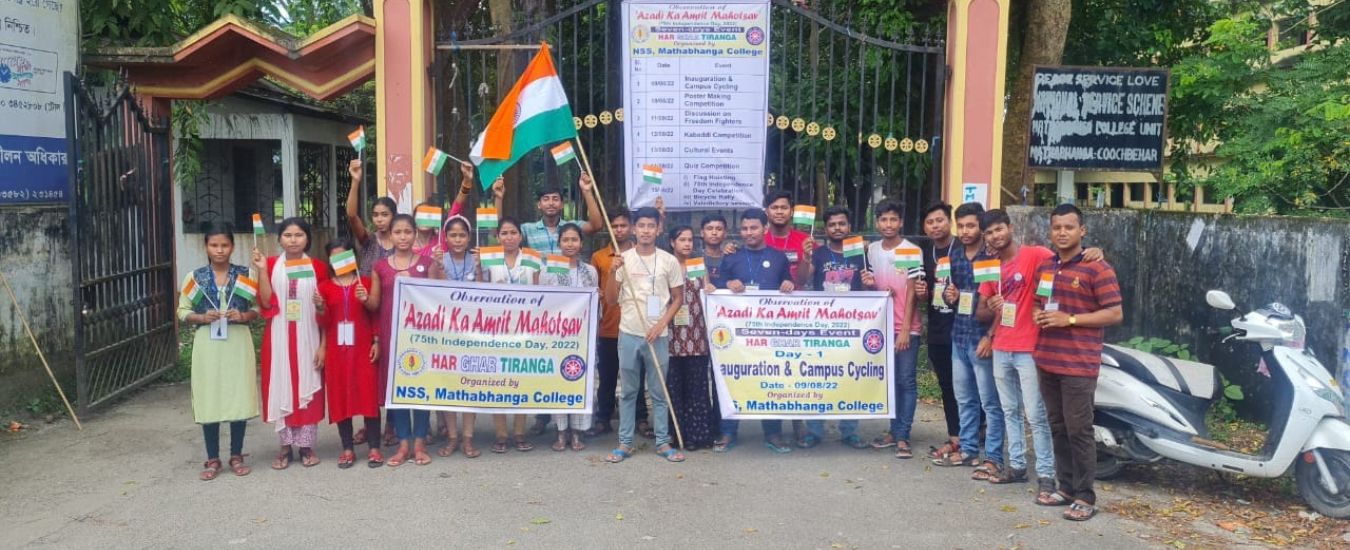NSS
Mathabhanga College NSS Unit
The College has one functional National Service Scheme (NSS) Unit since 1982. First Programme Officer was Prof Parthasarathi Das, Dept. of Political Science. It is further flourished under the strong leadership of Dr. Debashish Dutta, Assistant Professor Department of Bengali and Prof. Fulchan Barman, Assistant Professor Department of History. It is a voluntary association of students. At present Prof. Harendra Nath Barman, (M 8670172761), Assistant Professor of Philosophy, is in-charge of the NSS Unit.
- NSS conducts various social activities such as, cleaning, health camp, awareness camp, tree plantation program, etc. Apart from training the students to be an able and aware citizen, NSS offers an opportunity to develop leadership skills enhances their ability to work as a team.
- Total number of seats is for the active unit is 100.
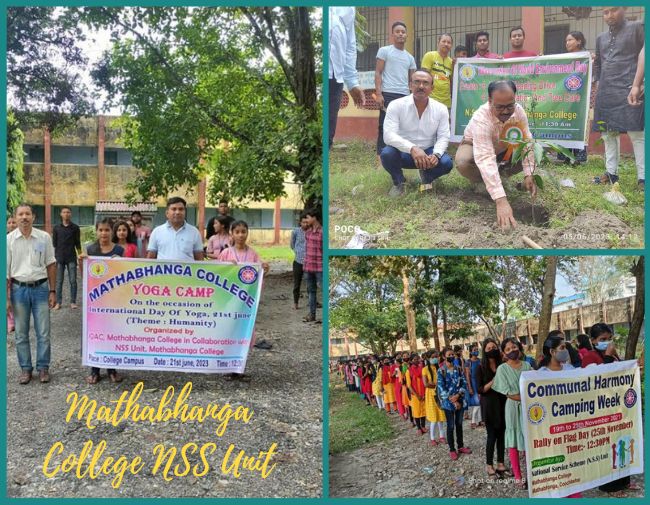
Activity of Mathabhanga College NSS Unit
World Environment Day Celebration
Like every year this year also “World Environment Day” is celebrated with the same enthusiasm but the process of celebration was a little bit different from the last few years due to the pandemic situation. Volunteers celebrate this day by planting trees in their homes and neighborhood.
International Yoga Day Celebration
Yoga day is celebrated by NSS unit of Mathabhanga College on 21st Jun 2021. Due to Corona’s restriction, the day
is celebrated by volunteers from their homes.
Winter Residential Camp
Mathabhanga College NSS Unit in organized a 7 days Winter Residential camp at a village named Panigram (Panigram High School) near Mathabhanga from 2nd March-8th march, 2020. The preparation of the camp started a month ago from the date of the camp. NSS Program Officer Dr. F. Barman with 2-3 student volunteers visited the village twice before setting the camp. There were 30 Volunteers in all which included 15 boys and 15 girls as well. Students from all branches and all years participated in the camp with great zeal. The objective of this camp was to begin the interface with the community, rapport building with community members, and developing an understanding of the village keeping in view the rationale of village adoption i.e. develops long-term institutional relations with the community and contribution to the up-liftmen of people therein.




